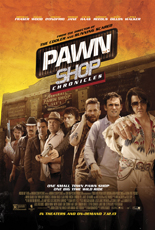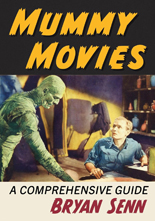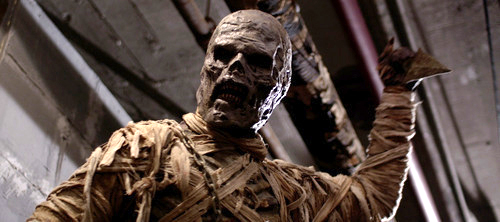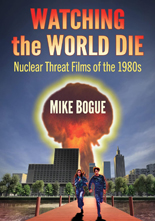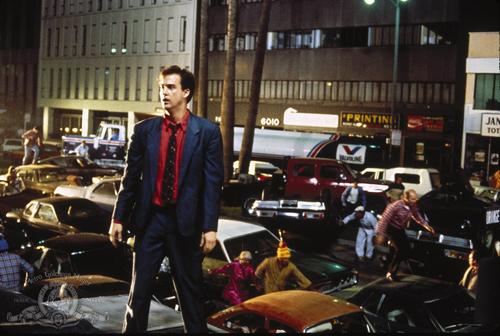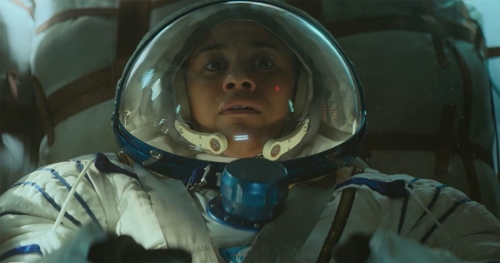
General Lee’s Pawn Shop inconspicuously stands beneath an overpass — an appropriate site for such an off-the-radar film. Since its quiet release direct to video, I’d paid it no mind because the title and poster led me to expect a reality show. Instead, Wayne Kramer’s Pawn Shop Chronicles is a crime anthology of three crisscrossing stories à la Pulp Fiction. Similarities end there.
Each tale is named after the pawned item in question. The constant? Shop owner Vincent D’Onofrio, of course.
In “The Shotgun,” Paul Walker (Kramer’s Running Scared) and Kevin Rankin (2018’s Skyscraper) play neo-Nazi, meth-smokin’, trailer-park hillbillies who rob a drug dealer. “The Ring” leads a stockbroker (Matt Dillon, The House That Jack Built) to rescue his long-missing, kidnapped wife (Pell James, Zodiac). Finally, a down-on-his-luck Elvis impersonator (Brendan Fraser, The Mummy trilogy) pulls into town to perform at the fair, only to be forced to give up “The Medallion” around his neck.
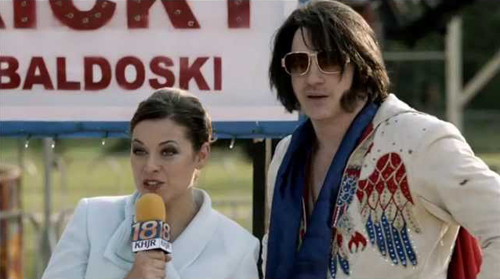
Kramer’s filmmaking style runs hot and cold with me. Pawn Shop Chronicles showcases both, plus the lukewarm in between, by virtue of its omnibus status noncommittal to a single genre. (Tellingly, this is the only movie the director hasn’t also written.) As a comedy — and not a politically correct one — “The Shotgun” works pretty well, thanks to Walker and Rankin’s tweaker act: “Is that my Styx CD in your pants?” And “The Ring” takes an unexpected turn into horror — Sadako-free, mind you — with Dillon encountering a most extreme example of Stockholm syndrome.
But “The Medallion”? With a burst of magical realism that doesn’t quite jive, it bites off more than it can chew, yet keeps on yapping with its mouth wide open. Its dueling barbershops and all-nude choir overdo the quirk at the sacrifice of a point. It’s not Fraser’s fault, though; God bless him, the big ol’ lovable goofball gives the part everything he can.
Also appearing throughout are Chi McBride, Elijah Wood, Thomas Jane, Norman Reedus, DJ Qualls, Lukas Haas and a bumper sticker reading, “At least Jesus didn’t write Battlefield Earth.” Amen. —Rod Lott

